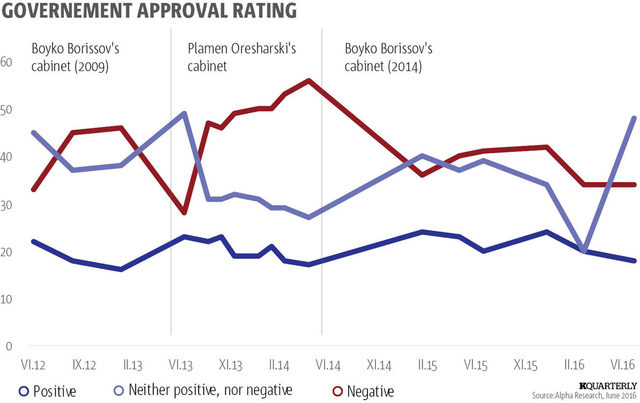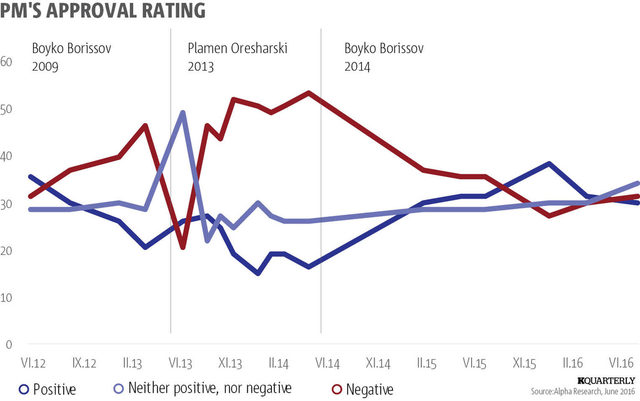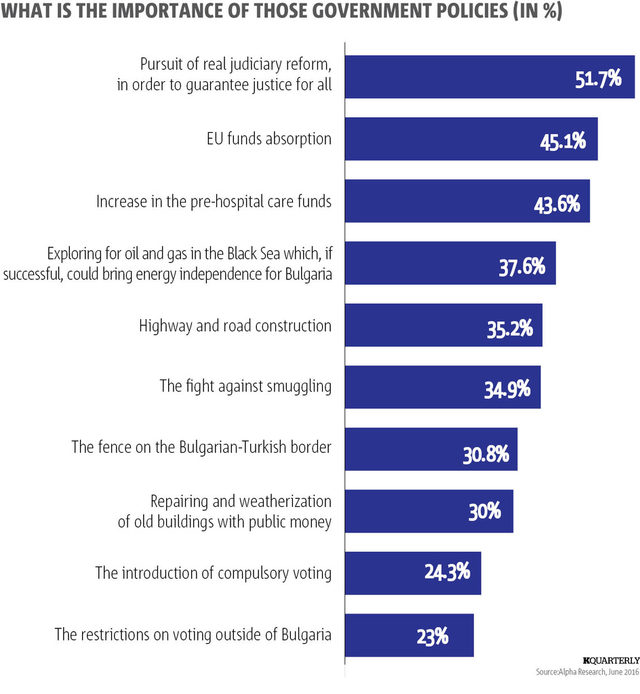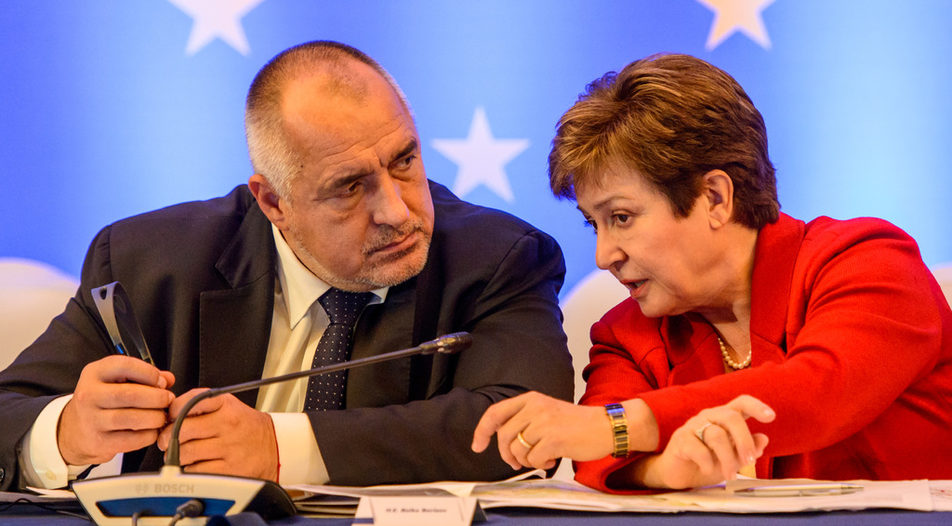With the presidential elections drawing closer, rumors of possible early parliamentary elections increase by the hour. Political parties battle for the media spotlight and spreading such rumors offers an easy path to draw attention. The Bulgarian Socialist Party (BSP) and the Movement for Rights and Freedoms (MRF) have already urged the Prime Minister to resign following the unsuccessful bid of Bulgarian EU Commissioner Kristalina Georgieva to become the next UN Secretary General. PM Boyko Borissov himself gave an indication that he might call a snap vote if the GERB's candidate for president, Tsetska Tsacheva, is not leading in the first round of November elections. There is even a conspiracy theory that GERB has deliberately chosen the least popular candidate in their ranks. Data of Alpha Research polling agency shows that Mrs.Tsacheva's approval rating is half that of Sofia Mayor Yordanka Fandakova, whose possible nomination was discussed in all seriousness. A loss for GERB's candidate will give the Socialist Party a president and in turn they will support the government, the conspiracy theory goes. In addition, the presidential elections will show that GERB's partner in the government coalition, the Reformist Bloc, has no popular support, the supporters of this scenario claim. This outcome will give Mr Borissov a motive to get rid of the RB and one more reason to embrace a coalition with BSP. The Prime Minister already threatened the RB ministers in the cabinet with expulsion from the government in a recent row over the Election codex.

A hypothetical grand coalition between GERB and BSP will be a game changer, but not necessarily a good one. In theory, in the current ruling coalition setting, GERB's most populist instincts are restrained by the Reformist Bloc - a motley crew of right-wing parties who claim to pursue a reformist agenda. If GERB and BSP join forces, it is quite possible that they will try to outdo each other's rhetoric on immigration issues, EU-bashing, finding new ways to please Russia and investing taxpayers' money in grandiose, yet futile projects. Given the increased migratory pressure, the government formula will certainly include a "national salvation" badge and one more reason for populist policies.

An alternative theory predicts that Boyko Borissov will call snap elections regardless of the result of the upcoming vote for president, because the government is losing steam. GERB's own commissioned polls show that support for Boyko Borissov is falling and he would have been unable to win the presidential elections in the first round. Borissov didn't want to risk a second round and decided not to run. But a weak result for GERB in the presidential elections will give him reason to ask the voters for a new mandate. Parliamentary elections have different dynamics in comparison to the presidential elections: they tend to split the vote and if fewer parties pass the 4% threshold required to enter parliament, then the biggest party will gain the most. This seems quite a possible scenario given that last polls show that even the MRF with its traditionally strong ethnic vote is losing traction with its supporters.
Despite the flurry of conspiracy theories, when rumors of snap elections in Bulgaria become this pervasive, it usually means they are unfounded. Even in 2013 and 2014, when the previous government of Boyko Borissov and the government of his successor Plamen Oresharski faced massive protests and calls for resignation, the decisions to call early elections came as a surprise.

There are many signals that GERB is unwilling to take risks. For example, only two months ago PM Borissov declared that he would call early parliamentary elections if his party loses the president's post. Few weeks before the elections he changed his mind. The prospect of defeat (no matter how distant) made him state that a snap vote will be called only if GERB loses the elections in the first round (statistically impossible).
But the snap elections rumors persist. So don't be surprised if the election season continues for a while longer.
With the presidential elections drawing closer, rumors of possible early parliamentary elections increase by the hour. Political parties battle for the media spotlight and spreading such rumors offers an easy path to draw attention. The Bulgarian Socialist Party (BSP) and the Movement for Rights and Freedoms (MRF) have already urged the Prime Minister to resign following the unsuccessful bid of Bulgarian EU Commissioner Kristalina Georgieva to become the next UN Secretary General. PM Boyko Borissov himself gave an indication that he might call a snap vote if the GERB's candidate for president, Tsetska Tsacheva, is not leading in the first round of November elections. There is even a conspiracy theory that GERB has deliberately chosen the least popular candidate in their ranks. Data of Alpha Research polling agency shows that Mrs.Tsacheva's approval rating is half that of Sofia Mayor Yordanka Fandakova, whose possible nomination was discussed in all seriousness. A loss for GERB's candidate will give the Socialist Party a president and in turn they will support the government, the conspiracy theory goes. In addition, the presidential elections will show that GERB's partner in the government coalition, the Reformist Bloc, has no popular support, the supporters of this scenario claim. This outcome will give Mr Borissov a motive to get rid of the RB and one more reason to embrace a coalition with BSP. The Prime Minister already threatened the RB ministers in the cabinet with expulsion from the government in a recent row over the Election codex.













